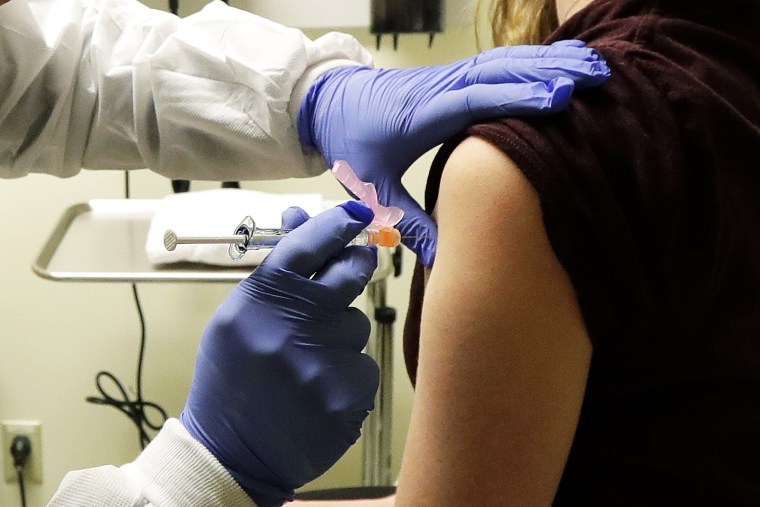The broad expectation is that a national recovery can begin in earnest once there's a coronavirus vaccine, but that's many months away. One of the key questions, here and around the world, is what options are available between now and then.
The answer is not altogether elusive. A dramatically scaled-up testing regiment is an obvious piece of the puzzle, along with everything that comes with it: expanded availability of supplies, far more testing facilities, an army of qualified lab technicians, etc. Similarly, widespread contact tracing and the availability of isolation centers would make significant differences.
And then, of course, there's the matter of treatments. Right now, the emphasis on social distancing is so forceful because it's our principal weapon to stop the spread of the virus, but if there were more effective medical treatments available for those infected it would have a dramatic societal effect.
The good news is, there's no shortage of highly motivated researchers exploring possible treatments that could be ready long before there's a vaccine. The bad news is, as the Washington Post reported this week, the effort is a chaotic mess in need of centralized, federal coordination.
Development of effective treatments for covid-19, the disease the virus causes, would be one of the most significant milestones in returning the United States to normalcy. But the massive effort is disorganized and scattershot, harming its prospects for success, according to multiple researchers and health experts. Researchers working around-the-clock describe a lack of a centralized national strategy, overlapping efforts, an array of small-scale trials that will not lead to definitive answers and no standards for how to prioritize efforts, what data to collect or how to share it to get to answers faster.
The article pointed to several hundred uncoordinated human clinical trials, which puts the world at risk of "ending up with a raft of inconclusive and conflicting studies and little idea of what interventions work for the next wave of illness."
The relevant players seem to recognize the problem. The Post spoke to NIH Director Francis Collins, who said yesterday that there is an effort underway to forge a partnership with private companies and research centers. It's challenging, in part because it will likely require "sacrifices of personal recognition, scientific credit and profit," but the discussions are ongoing.
Here's hoping they hurry.

